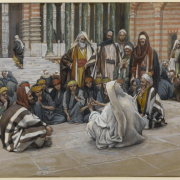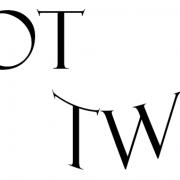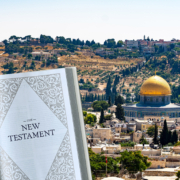Is the God of the New Testament the Same as the God of Israel?
Some have argued that the God of the New Testament is different from the God of the Hebrew Bible. If you were brought up in a Jewish home, this may have been a common notion. For some, the God of Israel is known through the Hebrew Scriptures, whereas the God of the New Testament was invented by Gentile Christianity. Others say that the God of the New Testament is the same as the God of the Old Testament. So, do the two Testaments teach about the same God or not?
From our perspective, the answer is that both Testaments teach about the same God. Jesus and most of his early followers were Jewish, and in his teaching, Jesus constantly speaks of the God of Abraham, Isaac, and Jacob. In sermons like the Sermon on the Mount (Mat. 5–7) and in casual conversations with his disciples, he sought to point Israel to her Creator.
For example, when Yeshua was asked which commandment was the most important, he responded by quoting the Shema, perhaps the most foundational expression of Jewish faith: “Hear, O Israel: The Lord our God, the Lord is one. And you shall love the Lord your God with all your heart and with all your soul and with all your mind and with all your strength” (Mark 12:29–30; cf. Deuteronomy 6:4–5). He affirmed that, despite the claims of societies such as the Romans who worshipped a number of deities, there is only one true God, the God who created the universe and made Israel his people. Moreover, this relational God who made all things and wants us to know him is deserving of our love and praise. All of our heart, soul, mind, and strength is another way of saying with everything that we are.
Jesus personally affirmed the faith of his Jewish followers, and encouraged his non-Jewish disciples to leave their pagan deities to follow the God of Israel. Once, when Jesus was traveling through a predominantly Gentile area, crowds came to him seeking healing. As they saw this Jewish teacher enabling the blind to see and the lame to walk, “they glorified the God of Israel” in response (Matthew 15:31). In both word and action, Jesus sought to honor the one true God who revealed himself to Israel. It is clear, at least in Jesus’ mind, that the God of the Hebrew Scriptures was the Father he prayed to and promoted in his preaching.
Yeshua’s early followers maintained the same goal. For instance, one of them, Peter, said that “the God of Abraham, the God of Isaac, and the God of Jacob, the God of our fathers” had honored the Messiah Yeshua (Acts 3:13a). Again, from our reading of the biblical texts it is evident that the God who made himself known to the forefathers of the Jewish people (Abraham, Isaac, and Jacob) is the same God who sent Yeshua to save Israel and make God known in all the world (Luke 2:27–32).
Indeed, Yeshua not only sought to honor the God of Israel, but to also identify himself as that very God in human form. He said, “Before Abraham was, I am” (John 8:58). Yeshua walked the earth more than two thousand years after Abraham lived, so there is no way he could have existed before Abraham if he were only a human being. Rather, Yeshua is God’s Son, who is eternal and equal to God the Father. His statement, “I am,” confirms this. The phrase has nothing to do with ideas such as “I am American” or “I am happy.” Yeshua was referring to the name God claimed for himself when he appeared to Moses: “I am who I am” (Exodus 3:13–15). Yeshua applied to himself the very name of God, a striking assertion. With these words, he presented himself as equal to the God who through Moses liberated the Israelites.
Jesus never intended to begin a new religion or introduce a new deity. He, along with his followers, taught Israel to worship the God of Abraham, Isaac, and Jacob, the one true God and king of the universe. His teaching and actions consistently exalt God and spur his audience to do likewise, whether Jewish or Gentile.


 Public Domain
Public Domain





